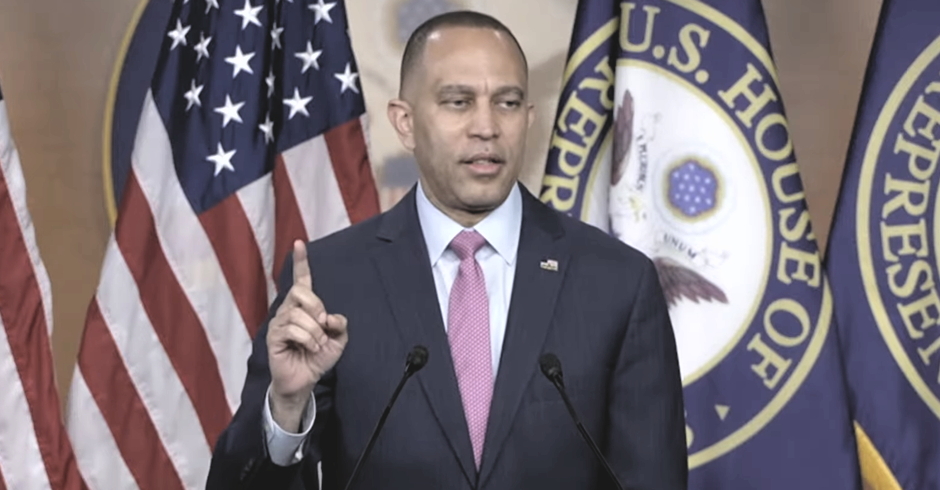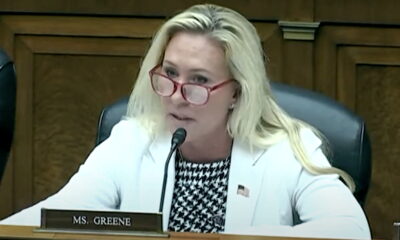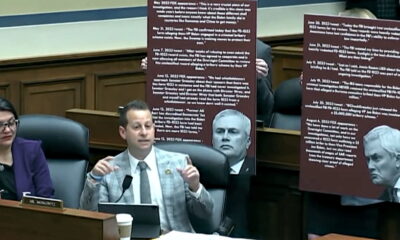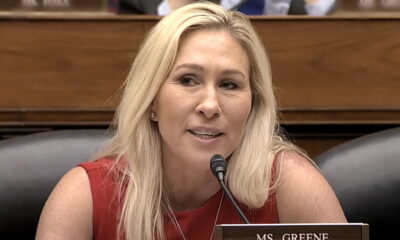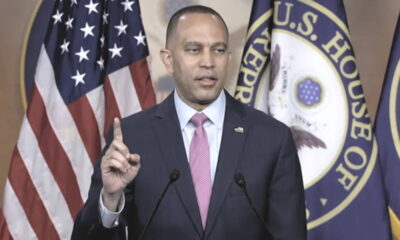BREAKING: Supreme Court Kills DOMA And Prop 8
The U.S. Supreme Court just minutes ago issued two decisions in landmark marriage cases, ruling in favor of same-sex marriage supporters. In a 5-4 ruling the Court ruled that section 3 of DOMA is unconstitutional, based on the Fifth Amendment. It is a broad ruling, rendering the 1996 law that bans the federal government from recognizing same-sex marriages effectively void.
On Proposition 8, the Court deferred to the lower court’s ruling — that was upheld by a higher court — which allowed California same-sex couples to marry, stating that the plaintiffs that brought the case to the court did not have “standing” to do so. The Supreme Court ruling effectively invalidates the four-year old California constitutional initiative as unconstitutional. The ruling was 5-4, with Chief Justice John Roberts siding with the majority.
Prop 8 was a ballot initiative that California voters passed, writing anti-gay discrimination directly into the Golden State’s constitution, not only banning the right of same-sex couples to marry, but taking away the right of same-sex couples to marry after they had been granted it. The amendment to the constitution passed in 2008 by (approximately) a 52-48 vote.
“DOMA singles out a class of persons deemed by a State entitled ot recognition and protection to enhance their own liberty,” the ruling states, relying on federalism principles. Chief Justice Roberts and Justice Scalia dissented.
DOMA is the Defense of Marriage Act of 1996 that banned the federal government from recognizing same-sex marriages, but allowed individual states to decide the issue. Since its passage, dozens of federal judges, President Barack Obama, Attorney General Eric Holder, and many others have deemed it unconstitutional. Even President Bill Clinton, who signed it into law, voiced his opposition to the law recently.
The American people in polls overwhelmingly have believed DOMA should be repealed or struck down, and also believe same-sex couples should be given the right to marry.
 The DOMA case, officially United States v. Windsor, involves Edith Windsor (Edie, right, below) and her case against the Internal Revenue Service (IRS), which demanded she pay over $363,000 in estate inheritance taxes because the federal government did not recognize her marriage as valid. But the state of New York — where Windsor lived with her long-time partner of more than four decades, Thea Spyer — recognized their marriage as valid. Historically, states had been the entity to decide who is allowed to marry and who is not, and the federal government generally deferred to those decisions.
The DOMA case, officially United States v. Windsor, involves Edith Windsor (Edie, right, below) and her case against the Internal Revenue Service (IRS), which demanded she pay over $363,000 in estate inheritance taxes because the federal government did not recognize her marriage as valid. But the state of New York — where Windsor lived with her long-time partner of more than four decades, Thea Spyer — recognized their marriage as valid. Historically, states had been the entity to decide who is allowed to marry and who is not, and the federal government generally deferred to those decisions.
18,000 same-sex couples married in California between the time the California Supreme Court ruled same-sex couples had the right to marry, and when voters rescinded that right. Those couples were allowed to retain their marriages as legal, creating yet another distinct class of citizenry — something most courts abhor.
The U.S. Supreme Court today ruled that Prop 8 indeed was the result of anti-gay animus, supporting the 2010 ruling by U.S. District Chief Judge Vaughn Walker and the subsequent 2012 Ninth Circuit Court of Appeals 2-1 appeal decision.
The Supreme Court heard oral arguments in both cases in late March of this year.
 Ironically, today marks the ten-year anniversary of Lawrence v. Texas, a Supreme Court case that effectively made same-sex sexual activity legal.
Ironically, today marks the ten-year anniversary of Lawrence v. Texas, a Supreme Court case that effectively made same-sex sexual activity legal.
This is a developing story and may be updated throughout the day.
Stay with The New Civil Rights Movement all day, and through the week for breaking news, analysis, and opinion on the SCOTUS same-sex marriage decisions from our community’s finest and most-respected attorneys, activists, politicians, and even plaintiffs in other marriage cases.Â
Read more on our team of guest authors who will be sharing opinions and analysis today and this week.
Â
Image, top, by HRC via Twitter. Image of Edie Windsor by Gina Webber via Instagram. New York Times image by Lambda Legal, via Twitter.

Enjoy this piece?
… then let us make a small request. The New Civil Rights Movement depends on readers like you to meet our ongoing expenses and continue producing quality progressive journalism. Three Silicon Valley giants consume 70 percent of all online advertising dollars, so we need your help to continue doing what we do.
NCRM is independent. You won’t find mainstream media bias here. From unflinching coverage of religious extremism, to spotlighting efforts to roll back our rights, NCRM continues to speak truth to power. America needs independent voices like NCRM to be sure no one is forgotten.
Every reader contribution, whatever the amount, makes a tremendous difference. Help ensure NCRM remains independent long into the future. Support progressive journalism with a one-time contribution to NCRM, or click here to become a subscriber. Thank you. Click here to donate by check.
 |


